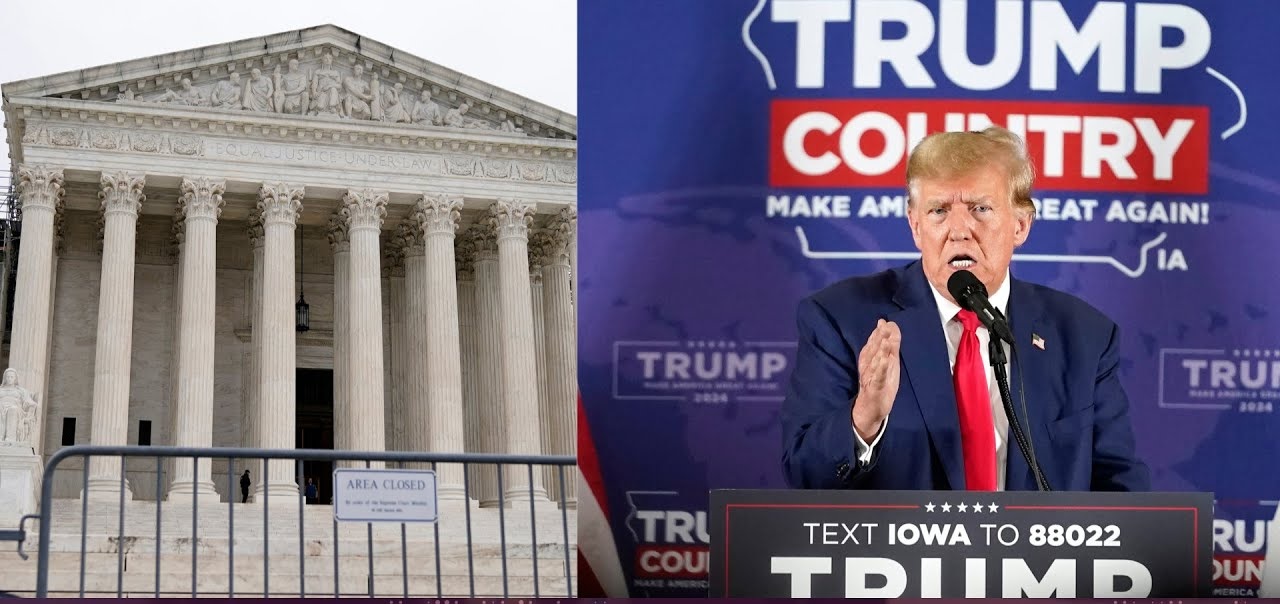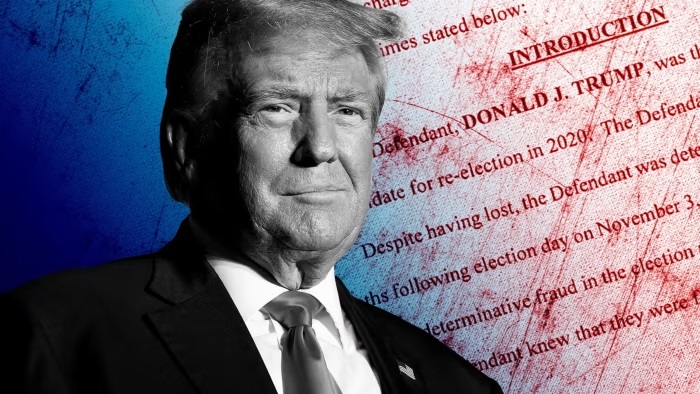
Donald Trump’s lawyers have petitioned the U.S. Supreme Court to challenge his disqualification from the presidential primary ballot in Colorado.
Reasoning Behind Trump’s Bid to Reverse Disqualification Under 14th Amendment’s Section 3
Former President Donald Trump’s legal team petitioned the U.S. Supreme Court to reverse the Colorado Supreme Court’s presidential primary ballot disqualification. Disqualified for encouraging the January 6, 2021, Capitol riot, which violated Section 3 of the 14th Amendment. Insurrectionaries cannot occupy public office under this rule. Trump’s petition raises significant problems about this provision’s interpretation and implementation, sparking a legal dispute on its enforcement and repercussions.
Trump’s lawyers have boldly petitioned the U.S. Supreme Court to overturn his removal from the Colorado presidential primary ballot. He was accused of inciting the 2021 U.S. Capitol riot, sparking a legal struggle over Section 3 of the 14th Amendment.
The petition claims that the disqualification attempt violates Section 3 of the 14th Amendment, which banned former Confederates from public office after the Civil War. It claims that applying the rule to Trump presents complex legal issues that must be considered.
READ ALSO: President Biden Reflects On Capitol Riot And Democracy’s Strength Three Years Later
UCLA election law expert Richard Hasen called Trump’s legal brief compelling and acknowledged its challenging Section 3 interpretation and applicability problems. The legal controversy continues over whether Section 3 is self-executing or requires congressional legislation.
Legal academics disagree whether Section 3 is constitutionally disqualifying without congressional authorization. Different interpretations and applications of the clause for disqualifying somebody from public office are debated.
Trump’s legal team’s petition raises important legal and constitutional considerations about Section 3 of the 14th Amendment’s enforceability and interpretation as the legal battle continues. This legal challenge may influence how this law is interpreted and applied to disqualify public office seekers.
READ ALSO: Nebraska Civic Group Weighs In On Planned Parenthood Case With Amicus Brief
























